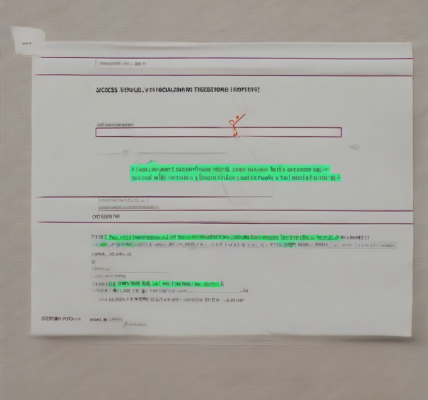Mortgage Pre-Qualification: Your First Step Towards Homeownership
Buying a home is a significant financial undertaking, and understanding the mortgage process is crucial for a smooth and successful experience. Before you even start browsing listings, pre-qualification is a vital initial step that sets the stage for your home search. This process provides you with a crucial understanding of your borrowing power and helps you navigate the complexities of the mortgage market with confidence.
What is Mortgage Pre-Qualification?
Mortgage pre-qualification is a preliminary assessment of your ability to secure a mortgage loan. Unlike pre-approval (which involves a more in-depth review of your finances), pre-qualification provides a quick estimate of how much you can borrow based on your stated financial information. It’s a less formal process, typically requiring only a brief overview of your income, debts, and credit score. Lenders will use this information to provide a loan amount range, rather than a specific loan commitment.
Why is Mortgage Pre-Qualification Important?
- Sets a Realistic Budget: Pre-qualification gives you a clear picture of your affordability, preventing you from falling in love with homes that are beyond your reach. It helps you establish a realistic budget and focus your home search on properties within your financial capabilities.
- Strengthens Your Offer: When you make an offer on a home, sellers often prefer buyers who are pre-qualified. It demonstrates your seriousness and financial readiness, making your offer more competitive in a buyer’s market.
- Saves Time and Effort: By knowing your borrowing power upfront, you avoid wasting time viewing properties you can’t afford. It streamlines the home-buying process and allows you to focus on properties that align with your budget.
- Provides Confidence: The pre-qualification process gives you peace of mind, knowing you have a general idea of your financial capabilities before you begin the more rigorous pre-approval stage.
- Negotiating Power: A pre-qualification letter can be a powerful tool in negotiations, demonstrating your financial stability to sellers and potentially influencing the terms of the sale.
The Pre-Qualification Process: What to Expect
The pre-qualification process is usually straightforward and relatively quick. Here’s a typical overview:
- Contact a Lender: Reach out to a mortgage lender, either in person, by phone, or online. You can compare rates and terms from multiple lenders to find the best fit for your needs.
- Provide Basic Financial Information: The lender will ask for basic information about your income, debts, assets, and credit score. This typically includes:
- Gross monthly income
- Monthly debt payments (credit cards, car loans, student loans)
- Estimated credit score
- Down payment amount
- Assets (savings, investments)
- Receive a Loan Estimate: Based on the information you provide, the lender will provide an estimate of the mortgage amount you may be eligible for. This is not a formal loan commitment but serves as a guideline for your home search.
Pre-Qualification vs. Pre-Approval: Key Differences
While both pre-qualification and pre-approval involve assessing your mortgage eligibility, there are key differences:
| Feature | Pre-Qualification | Pre-Approval |
|---|---|---|
| Depth of Review | Basic review of financial information | In-depth review of financial documents and credit history |
| Time Required | Quick and easy (minutes to hours) | Takes longer (days to weeks) |
| Documentation Required | Minimal documentation needed | Requires extensive documentation (pay stubs, tax returns, bank statements) |
| Loan Commitment | No formal loan commitment | Formal loan commitment, subject to appraisal and final underwriting |
| Impact on Offers | Shows serious intent but not as strong as pre-approval | Stronger indication of financial readiness and improves offer competitiveness |
Factors Affecting Pre-Qualification
Several factors influence the outcome of your pre-qualification process:
- Credit Score: A higher credit score generally leads to better loan terms and higher borrowing capacity.
- Debt-to-Income Ratio (DTI): Lenders assess your DTI to determine your ability to handle monthly mortgage payments alongside existing debts. A lower DTI is preferred.
- Income Stability: Consistent and stable income is crucial for demonstrating your ability to repay the loan.
- Down Payment: A larger down payment can improve your chances of approval and often results in lower interest rates.
- Type of Mortgage: Different mortgage types have different eligibility requirements and may influence your pre-qualification outcome.
Choosing a Lender
Selecting the right lender is vital. Consider these factors:
- Interest Rates: Compare rates from multiple lenders to secure the most favorable terms.
- Fees: Be aware of any associated fees, such as application fees or origination fees.
- Reputation and Customer Service: Choose a reputable lender with a positive track record and excellent customer service.
- Loan Programs: Ensure the lender offers mortgage programs that align with your needs and financial situation.
After Pre-Qualification
Once you’ve been pre-qualified, it’s time to move onto the next stage: pre-approval. This involves providing more detailed financial documentation to the lender, who will then conduct a more thorough assessment of your creditworthiness and financial stability. Pre-approval strengthens your offer significantly and puts you in a much stronger position when making an offer on a home.
In Conclusion
Mortgage pre-qualification is an essential first step in the home-buying process. By understanding your borrowing power and establishing a realistic budget, you can navigate the complexities of the mortgage market with confidence and make informed decisions throughout your home search. It’s a crucial tool that empowers you to confidently pursue your dream of homeownership.




